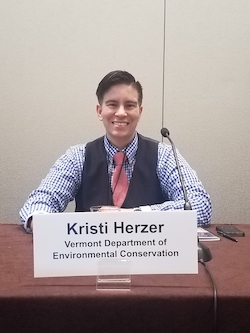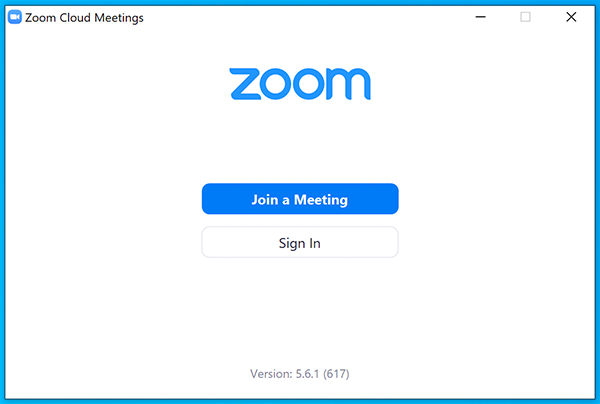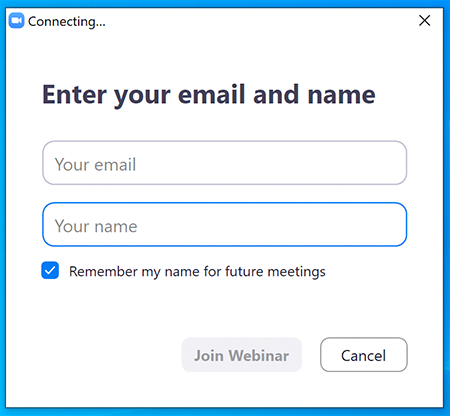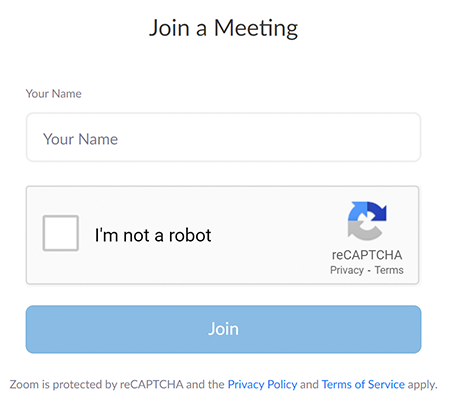ITRC PFAS Beyond the Basics: PFAS Human Health, Ecological Effects and Regulations Training
Sponsored by: Interstate Technology and Regulatory Council
This training class builds on the earlier information for introductory PFAS topics presented in the PFAS 101 CLU-IN training. It provides more in-depth information for human health effects, ecological toxicity and ecological risk assessment, PFAS regulations, and AFFF alternatives and replacement.
Resources and further details for the topics included in this training are in the published PFAS-1 guidance document in Sections 7, 8 and 17.2 along with referenced tables.
Learning Objectives:
- Discuss new information on the health effects of categories of PFAS not previously addressed. We'll also talk about the recent use of data from epidemiology studies to develop toxicity factors and guidelines; describe how the U.S. EPA has recently used a mixtures approach to derive a proposed MCL for 4 PFAS. We'll discuss why certain agencies are regulating PFAS as a class, and give examples, and will also give brief updates on our understanding of the adverse effects of PFAS after inhalation or dermal exposure.
- Discuss PFAS exposure pathways relevant to ecological receptors; general toxicological information available for invertebrates, vertebrates, and plants; the data gaps and uncertainties associated with ecotoxicological studies; and current approaches in ecological risk assessment of PFAS.
- Discuss development and findings of some of the External Data Tables including the Water and Soil Values Table, the Air Criteria Table, and the Regulatory Programs Summary Table. Discuss the current status of some of the Federal Regulations including drinking water regulations and how this may impact some states. Discuss the current status of AFFF alternatives and replacement.
Linda Hall, Linda C. Hall (Lindachall@comcast.net)
Dr. Hall is an independent consulting toxicologist based in the California Bay Area. She has over 30 years of experience in environmental toxicology and human health risk assessment. Dr. Hall has actively followed the emerging science of per and polyfluoroalkyl substances (PFAS) toxicology, and is in her eighth year with the Interstate Technology and Regulatory Council (ITRC) PFAS team. She previously served as co-leader of the Regulations, Toxicity, and Risk Assessment group of ITRC, and now co-leads the Human and Ecological Effects subgroup. Dr. Hall has been a Principal Investigator (PI) and co-PI for EPA-, California-, and Department of Energy-funded research while at the University of California and Lawrence Livermore National Laboratory. She holds a Masters degree in Toxicology and a Ph.D. in Ecology (Ecological Toxicology).
 Kristi Herzer, Vermont Department of Environmental Conservation (kristi.herzer@vermont.gov)
Kristi Herzer, Vermont Department of Environmental Conservation (kristi.herzer@vermont.gov)
Kristi Herzer is an Environmental Analyst and Technical Program Lead for the State of Vermont's Department of Environmental Conservation. Kristi is a project manager in the Brownfields Program and the Sites Management Section and promotes the Vermont Brownfields Reuse and Environmental Liability Limitation Act (BRELLA) program. Kristi is the Division representative on VTDEC's Environmental Justice Team, an active member in a cross-agency PFAS workgroup, and co-author of multiple internal and external guidance documents for the regulated community. Since 2017, Kristi has served as a member and subgroup leader for the Sampling and Analysis section of ITRC's PFAS team, and most recently also serves as a subgroup leader of the PFAS Training team. Kristi holds a Bachelor of Science in Physics and Biology from Guilford College and a Master's Degree in Environmental Engineering from the University of Vermont.
 Chris McCarthy, M.S., Jacobs (chris.mccarthy@jacobs.com)
Chris McCarthy, M.S., Jacobs (chris.mccarthy@jacobs.com)
Chris McCarthy, M.S. is a nationally recognized ecological risk assessment expert with 24 years of experience. Chris has led risk assessments at sites around the U.S., Australia, Canada, and France. He directs teams in evaluating the likelihood and magnitude of adverse effects to human and non-human biota exposed to contaminants at hazardous waste sites and working with engineers on risk management strategies. Chris has been actively engaged in the thought leadership for PFAS ecotoxicity related work, leading toxicity studies with PFAS, and leading PFAS risk assessments at sites through the US and Australia. Chris regularly presents updates and gives training on the ecotoxicity and risk assessment of PFAS to audiences around the world. Chris is also an active member of the ITRC PFAS team including the regulations, toxicity, risk assessment, and surface water criteria subgroups. Chris earned a BS in Water Resources Management from University of New Hampshire and an M.S. in Biology from Minnesota State University.
 Lisa McIntosh, Terraphase (lisa.mcintosh@terraphase.com)
Lisa McIntosh, Terraphase (lisa.mcintosh@terraphase.com)
Lisa McIntosh is a Principal Toxicologist and Risk Assessment Consultant at Terraphase Engineering. Ms. McIntosh has over two decades of expertise in conducting both human health and ecological risk assessments, with additional experience in risk communication, environmental site assessment, wetland science and ecological restoration. Ms. McIntosh is certified as a general toxicologist by the American Board of Toxicology. She is actively involved in the scientific and regulatory community, including the Society of Environmental Toxicology and Chemistry, Society for Women Environmental Professionals and the Interstate Technology and Regulatory Council PFAS workgroup.
Brie Sterling, PA DEP (Bsterling@pa.gov)
Brie Sterling is an Environmental Group Manager with the Pennsylvania Department of Environmental Protection’s (PADEP) Land Recycling Program (Act 2) in Harrisburg, PA. Brie has been with PADEP since 2008 and currently leads the Remediation Standards Section, which provides technical support for risk assessment, vapor intrusion, and other project-related matters in support of the PADEP regional offices. Brie's group also maintains the toxicity database and the MSC calculations for the regulations and provides technical support for the regions regarding the Chapter 250 regulations. Brie also serves as a writing group co-lead on ITRC's PFAS team since its inception in 2017. Prior to joining the Remediation Standards section in 2012, Brie worked at the DEP BOL as an analytical chemist following a number of years in the analytical chemistry field at various environmental and industrial labs.
 Shalene Thomas, Batelle (thomass3@battelle.org)
Shalene Thomas, Batelle (thomass3@battelle.org)
Shalene Thomas is the Senior Emerging Contaminant Program Manager for Battelle. She has more than 25 years of experience in environmental consulting and has supported State, Federal and industrial clients with emerging contaminants risk management and mitigation strategies. She has supported emerging contaminants projects in 32 different states in 9 of the 10 USEPA regions as well as in Europe, Australia and Canada and has presented on the topic of PFAS and trained professionals in emerging contaminants across the US, Canada, and Australia.
Moderator:
ITRC Training Program (itrc@itrcweb.org)
Webinar Slides and References:
Additional Resources:
- These materials will be available by
Thank you for participating in our webinar. We would like to receive any feedback you might have that would make this service more valuable.
Help & FAQs
- Frequently Asked Questions
- Content Questions?
Call ITRC Training Program at 202-266-4932 or itrc@itrcweb.org - Technical Problems?
Leave us a comment - Cancel Your Registration
- My Participation Records
- CEU Credits and PDHs
Zoom Resources
Before Webinar Day
This seminar will be delivered through Zoom. Participants are encouraged to update to the latest version of the Zoom application for the best experience.
If you are unable to install the Zoom application, most functions will be available if you join just using a modern web browser such as Chrome, Edge or Firefox. We strongly encourage you to run the Zoom Meeting Test prior to attending this webinar. Technical support on the day of the webinar will be very limited and subject to significant delays.
Backup Conference Call
If you cannot participate using online audio, you may join the optional call in line. After checking in for the live event using the instructions listed below, you will see several options to participate. Please click the links in option 4 to follow along by phone and obtain the call in number. If you cannot access the phone number, you may request the call in line from the event moderator in the Q&A or send an email to Jean Balent at balent.jean@epa.gov
Click on "Join Webinar" at the top of this screen, enter your exact first and last name as you registered and enter the number of people attending at your location (including yourself). You should then be taken to the Zoom meeting room. Join with Zoom Application: For those joining with the Zoom application, you may be prompted to sign with a zoom account or join as a guest without signing in.
If joining as a guest, you will be prompted to enter your name and email address. Remember your name, image, video or voice may be visible to others in the live event. When done, click "Join" When it is time for the live event to start, the meeting host will admit you to the live Zoom meeting. Join via web browser (without the Zoom Application): For those joining with a web browser, you may close any pop ups prompting you to download the Zoom app. The next window will allow you to enter your name (first name and last name) and check the box that you are not a robot. Click the blue join button. You may also be asked to provide your email address before joining the room. Remember your name, image, video or voice may be visible to others in the live event. When done, click "Join" When it is time for the live event to start, the meeting host will admit you to the live Zoom meeting. You may need to periodically refresh the browser window to confirm if the host has admitted you. The presenters will control what slide you are viewing. You may submit questions online for the instructors to answer during the webinar by typing in the "Q&A" area. It is not necessary to wait until the question and answer periods to submit questions. At the end of the webinar you will be guided to our feedback form and links to additional resources, including the complete presentation. These links will remain active after the webinar. Provided for your convenience. Importing or accepting the invitation within this iCalendar file is not required, and declining the invitation does not cancel your registration. For additional information on iCalendar, please see our
iCalendar Help It is EPA's policy to make reasonable accommodation to persons with disabilities wishing to participate in the agency's programs and activities, pursuant to the Rehabilitation Act of 1973, 29 U.S.C. 791. Any request for accommodation should be made to at or , preferably one week or more in advance of the seminar, so that EPA will have sufficient time to process the request. EPA would welcome specific recommendations from requestors specifying the nature or type of accommodation needed. EPA welcomes specific recommendations from requestors specifying the nature or type of accommodation needed. Please note that CLU-IN provides both alternate phone call-in options and closed captioning for all webinars, and requests for these specific accommodations are not necessary.
Webinar Day, Checking In



Moving Through Slides
Feedback & Links to Additional Resources
iCalendar File
Rehabilitation Act Notice for Reasonable Accommodation
Rehabilitation Act Notice for Reasonable Accommodation
It is EPA's policy to make reasonable accommodation to persons with disabilities wishing to participate in the agency's programs and activities, pursuant to the Rehabilitation Act of 1973, 29 U.S.C. 791. Any request for accommodation should be made to at or , preferably one week or more in advance of the webinar, so that EPA will have sufficient time to process the request. EPA would welcome specific recommendations from requestors specifying the nature or type of accommodation needed. EPA welcomes specific recommendations from requestors specifying the nature or type of accommodation needed. Please note that CLU-IN provides both alternate phone call-in options and closed captioning for all webinars, and requests for these specific accommodations are not necessary.
Webinar Recording
By participating in this CLU-IN webinar, you automatically agree to authorize recording of audio and visual content presented during this live event and consent to subsequent use of this recording in the public domain by the U.S. Environmental Protection Agency. This recording may include questions, comments and poll responses provided by you during the live event in addition to your name, voice, image or likeness. This recording will be made available after the conclusion of the live event as part of the CLU-IN webinar archives, and will remain available indefinitely. If you do not wish to consent to the recording, please do not join the live event, and contact Jean Balent at 202-566-0832 or balent.jean@epa.gov to discuss your concerns.
Content Disclaimer
This webinar is intended solely to provide information to the public. The views and opinions expressed as part of this webinar do not necessarily state or reflect those of the U.S. Environmental Protection Agency. It is not intended, nor can it be relied upon, to create any rights enforceable by any party in litigation with the United States, or to endorse the use of products or services provided by specific vendors. With respect to this webinar, neither the United States Government nor any of their employees, makes any warranty, express or implied, including the warranties of merchantability and fitness for a particular purpose, or assumes any legal liability or responsibility for the accuracy, completeness, or usefulness of any information, apparatus, product, or process disclosed, or represents that its use would not infringe privately owned rights.

